The unrest grew rapidly after the election.
According to the accusations from the Venezuelan Attorney General's Office, Mr. Edmundo Gonzalez is accused of many crimes against the state, including crimes related to the announcement of the results of the recent presidential election in this country.
Previously, the Venezuelan Attorney General's Office had subpoenaed Mr. Gonzalez three times because his team posted online the presidential election results that were considered "false", causing public confusion about the victory of President Nicolas Maduro, leader of the United Socialist Party of Venezuela (PSUV). National Assembly President Jorge Rodriguez Gomez later pointed out signs of the opposition falsifying protocols at polling stations.
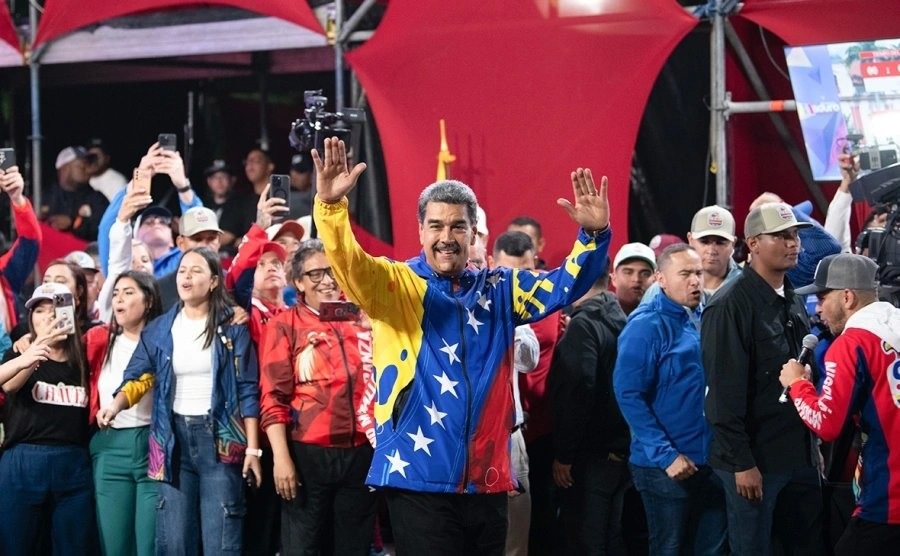
Venezuelan President Nicolas Maduro. Photo: Reuters
The Venezuelan government's tough measures against the opposition in general, and Edmundo Gonzalez in particular, have been strongly opposed by Maria Corina Machado, one of the key figures in the Venezuelan opposition, against whom the country's Attorney General's Office has also opened a criminal investigation, because she had called for Edmundo Gonzalez to be recognized as the winner of the recent presidential election.
On July 29, Venezuela's electoral authorities officially declared incumbent President Nicolas Maduro the winner of the July 28 election. Maduro called the victory "irreversible" although the opposition did not recognize it and his opponents abroad raised doubts about the authenticity of the declaration.
The opposition immediately disputed Maduro’s claim of victory. Gonzalez and Machado said they could prove their victory after winning 73.2% of the vote from polling stations.
The opposition accuses President Nicolas Maduro of plunging Venezuela into an economic and humanitarian crisis that has forced millions of people to flee abroad. At the same time, the opposition has called on supporters to take to the streets to protest the official election results. After a day of massive protests, violent clashes broke out with security forces.
Will the opposition organize a new wave of protests?
Venezuela has faced a political crisis since Mr Maduro was re-elected to a second term in 2018. The country was then engulfed in thousands of protests, and the opposition declared National Assembly President Juan Guaido as the country's leader.
Mr. Guaido has the support of several Western countries, including the United States, Israel, and even the Lima Group, an association of Latin American nations. Two bodies have simultaneously called themselves parliaments – the officially recognized National Assembly of Venezuela, which is largely controlled by President Nicolas Maduro’s party, and the “Alternative Legislative Assembly,” led by opposition leader Guaido. However, international support for Mr. Guaido has gradually waned and divisions have emerged within the opposition.
World leaders were divided in their assessment of the results of Venezuela’s July 28 elections. Russia and China congratulated Maduro on his victory on July 29. Meanwhile, several countries in the region, including Argentina, Peru and Costa Rica, almost immediately said they would not recognize Maduro’s victory.
Western countries initially issued cautious statements that they were concerned about the situation in Venezuela. However, on August 1, US Secretary of State Antony Blinken officially congratulated Edmundo Gonzalez on his election victory, saying that it was time for Venezuela to carry out a “peaceful and respectful transfer of power.”
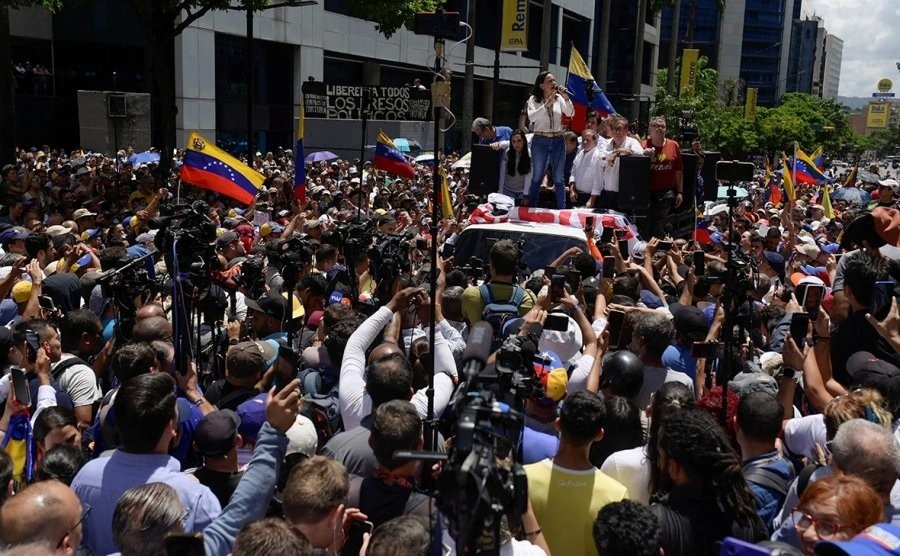
A protest movement of the Venezuelan opposition. Photo: Reuters
On August 3, the heads of the foreign affairs committees of both houses of the US Congress, as well as the chairmen of the foreign affairs committees of several European countries, issued a joint statement calling for Maduro to step down. In late August, the head of European diplomacy, Josep Borrell, said the European Union (EU) had also decided not to recognize Maduro's election victory.
On September 3, Bloomberg reported that the US Department of Justice is preparing to impose sanctions on 15 Venezuelan officials. According to a draft document proposed by the agency, the restrictions will directly target members of the Venezuelan Electoral Council, the Supreme Court, and SEBIN (the Bolivarian National Intelligence Service).
The US also seized a plane believed to be President Nicolas Maduro’s private jet, worth an estimated $13 million, on the grounds that it violated Washington’s sanctions against Caracas. The Venezuelan government condemned the seizure of the presidential plane in a statement on September 2, accusing Washington of escalating its interference in Venezuela’s internal affairs.
According to RBC, Andrei Pyatkov, a leading researcher at the Center for Political Studies, Institute of Latin America, Russian Academy of Sciences, commented that the international community is now much less inclined to support the Venezuelan opposition than in 2018. Expert Andrei Pyatkov noted that the US is waiting for the reaction of the Latin American community and is still extremely cautious when "betting" on opposition leader Edmundo Gonzalez, considering him a figure who is not prestigious enough to reverse the current political situation in Venezuela.
“The current crisis is also fundamentally different from the situation in 2018, because Mr. Guaido then had a clearer political base as President of the National Assembly than Mr. Gonzalez, who, although he became the official leader of the opposition, is still a person with a rather modest political career, even considered second in command to Ms. Machado, who has better social mobilization capabilities,” Mr. Pyatkov stressed.
According to the Russian expert, Gonzalez’s arrest could become a trigger for the opposition and lead to the “radicalization” of their actions under the leadership of Ms. Machado. Ms. Machado could be a figure that President Nicolas Maduro’s administration is particularly “watching”; because she and the political movement Vente Venezuela have attracted a large number of supporters at the polls, about 600 thousand people, and this could cause strong resistance from the Venezuelan opposition in the coming time.
Ha Anh
Source: https://www.congluan.vn/venezuela-lieu-co-the-tranh-duoc-vong-xoay-bat-on-moi-post310657.html


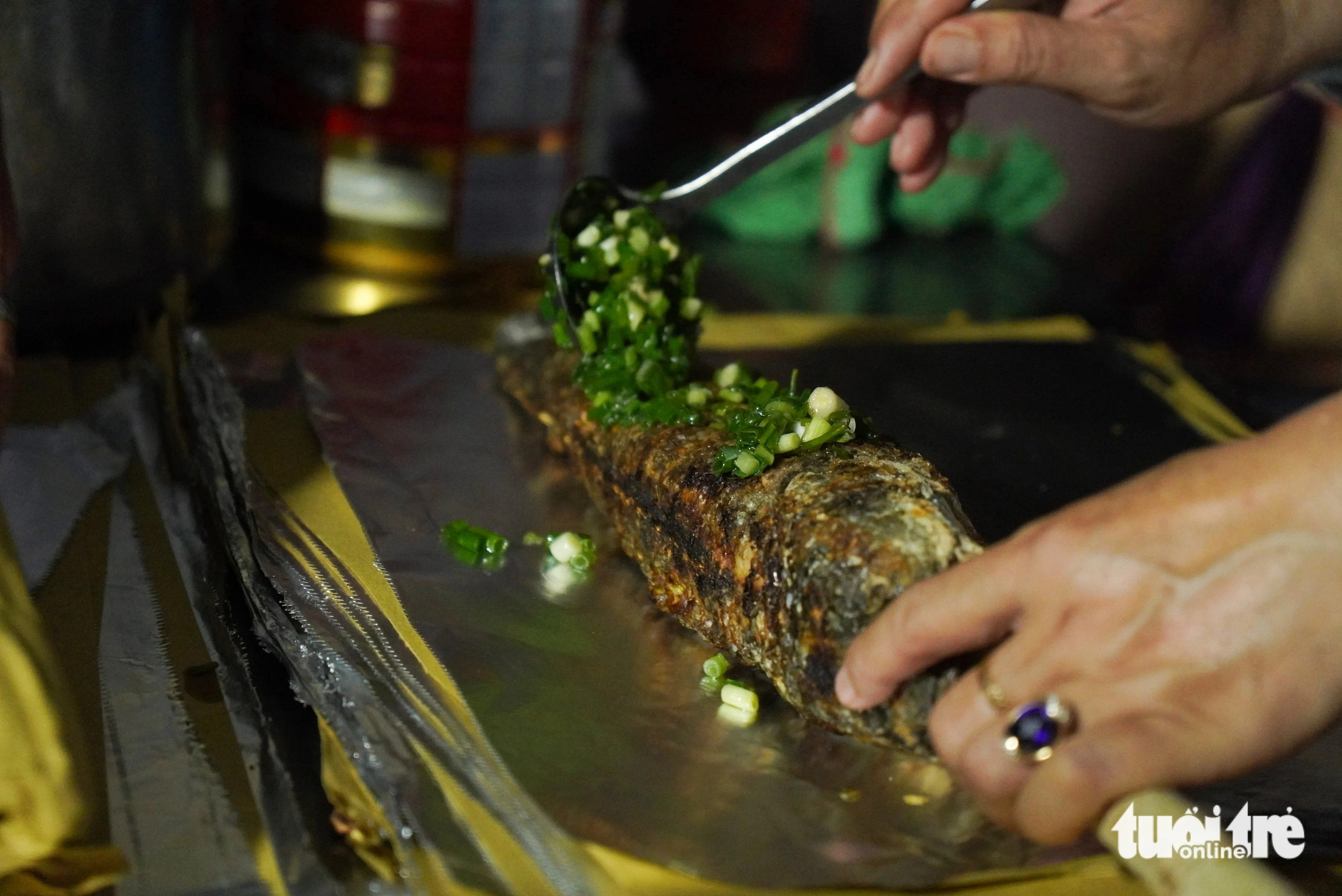




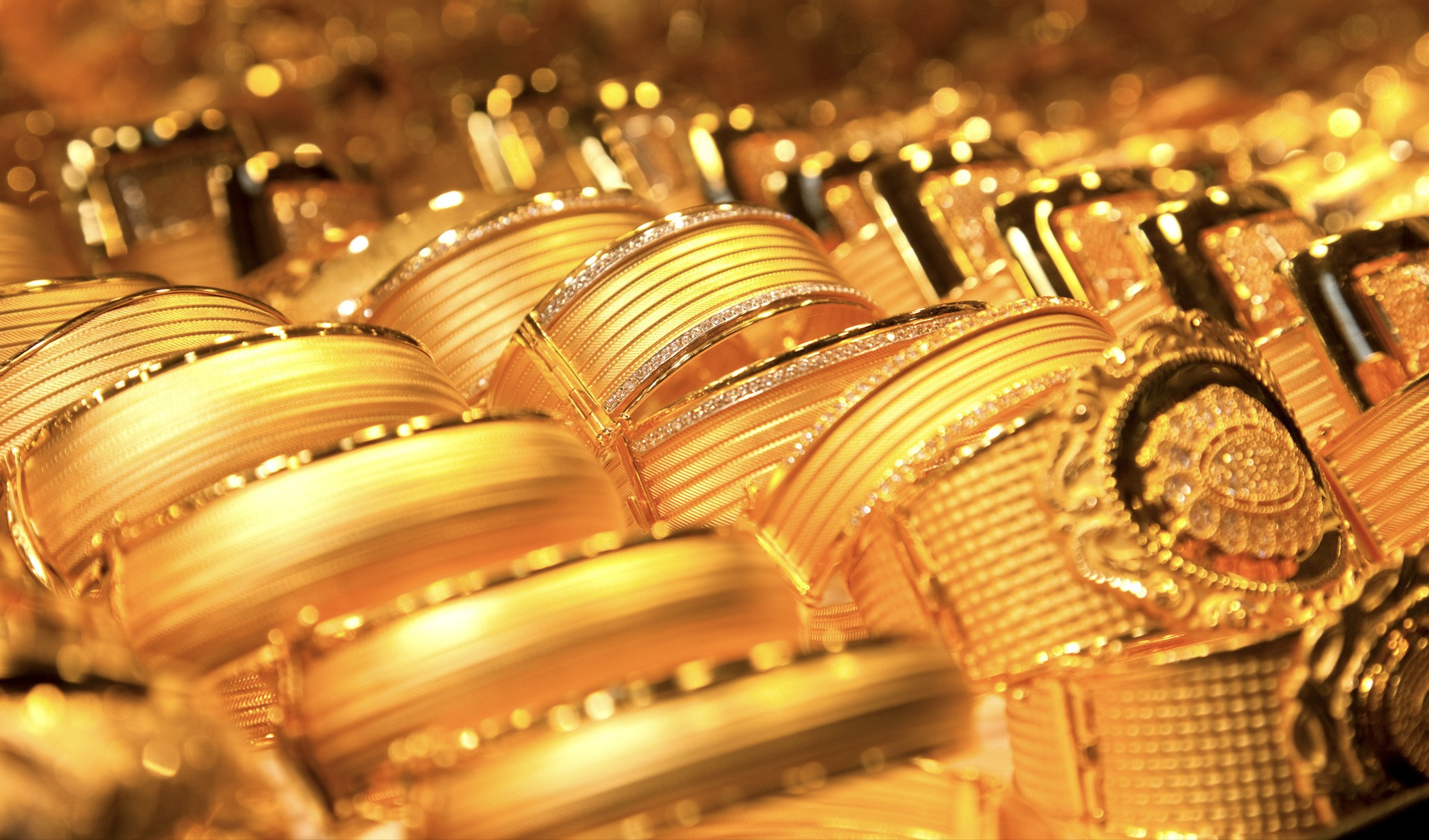






















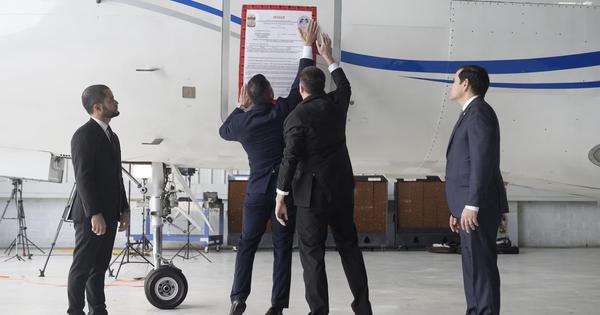



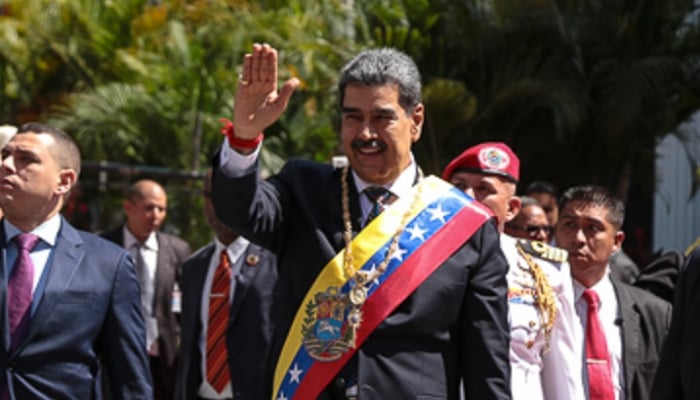
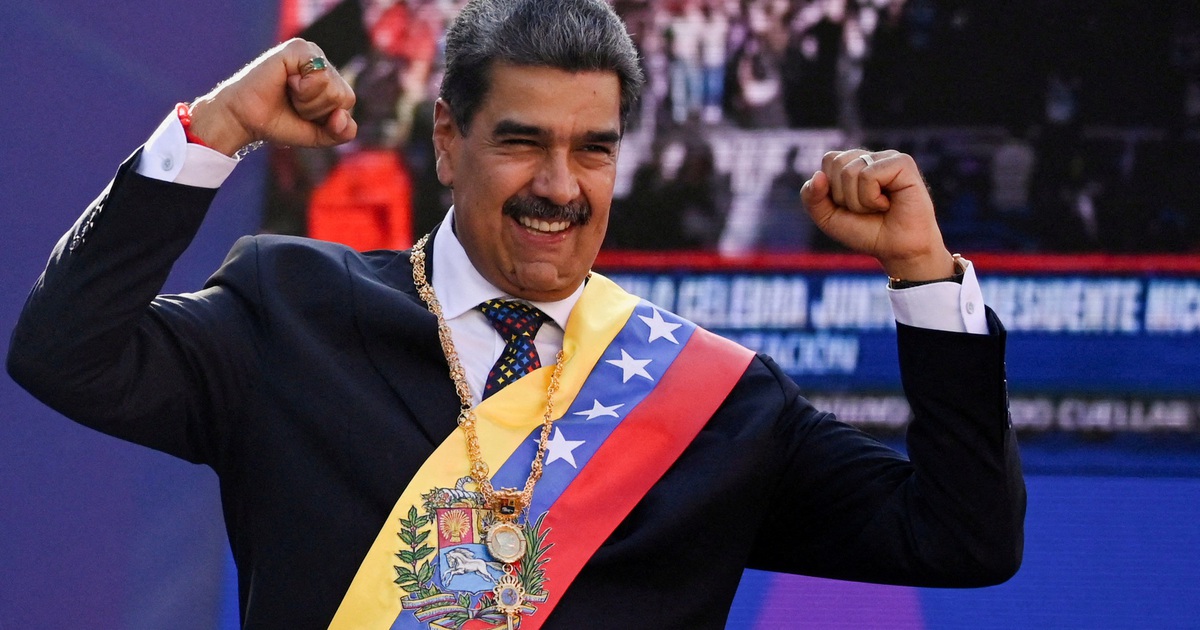

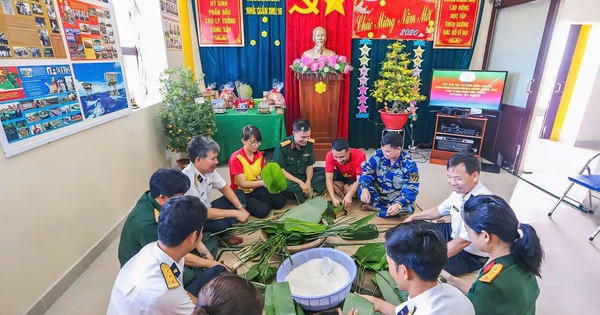

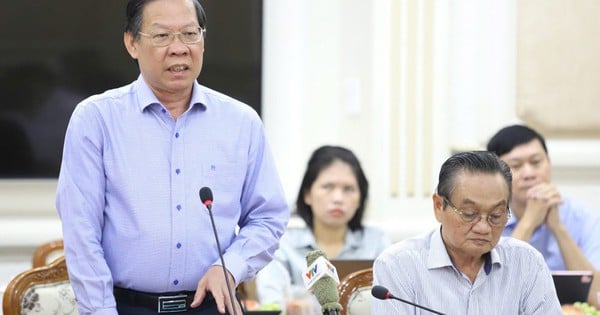
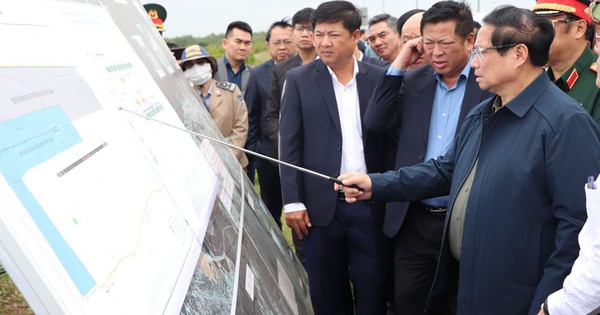
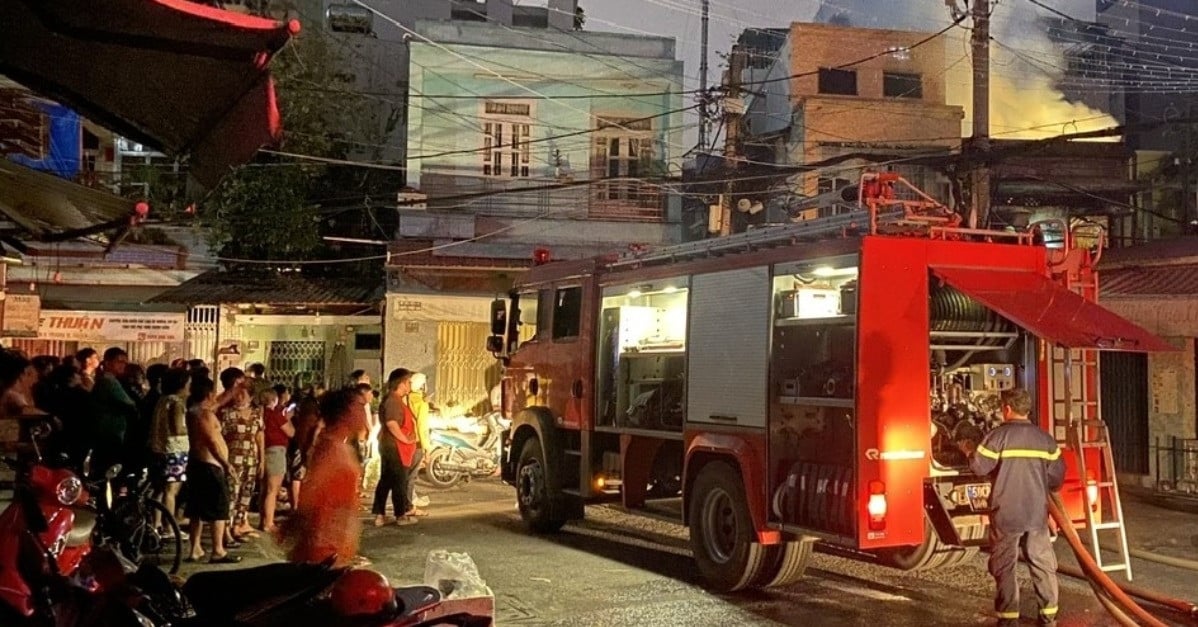

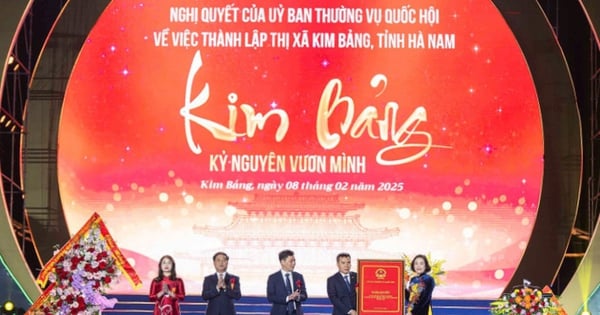
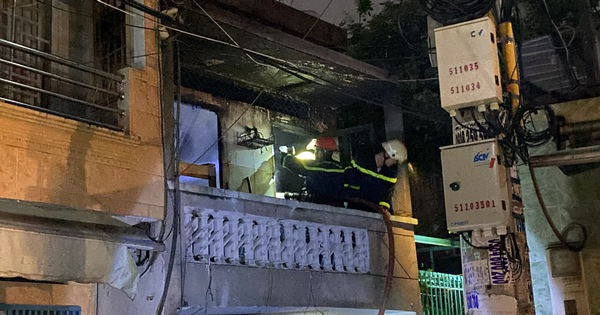
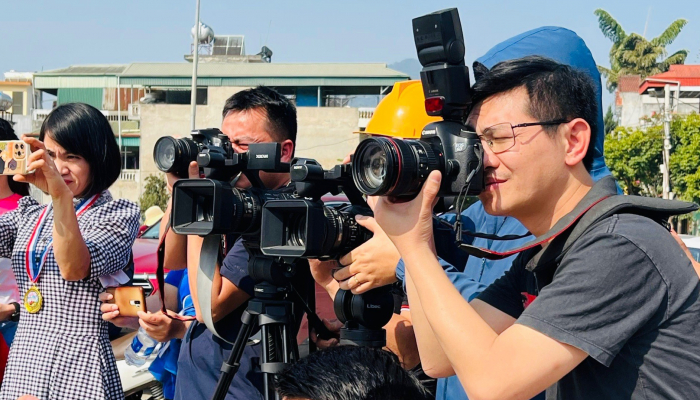
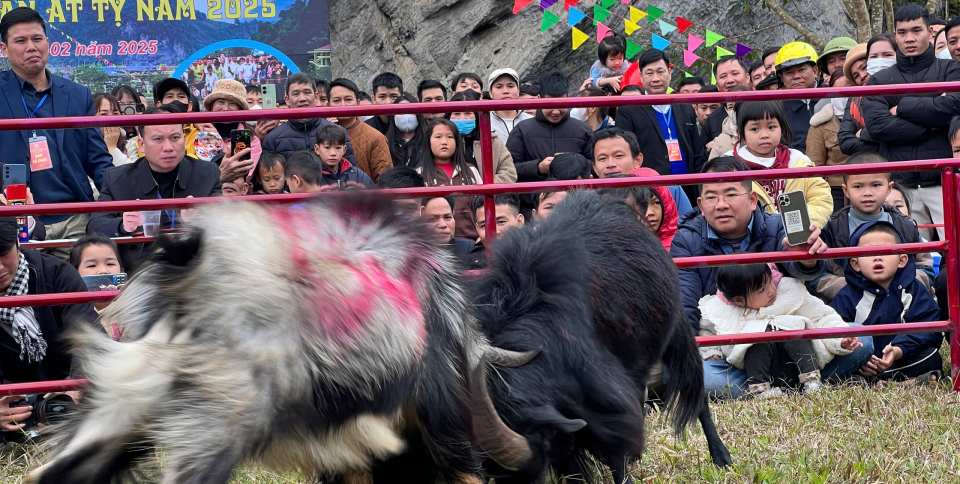
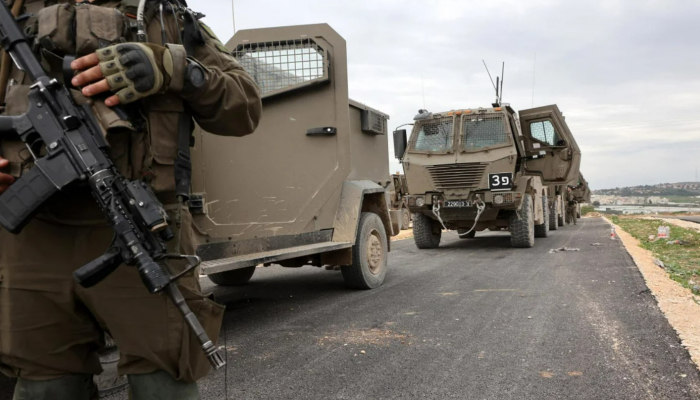
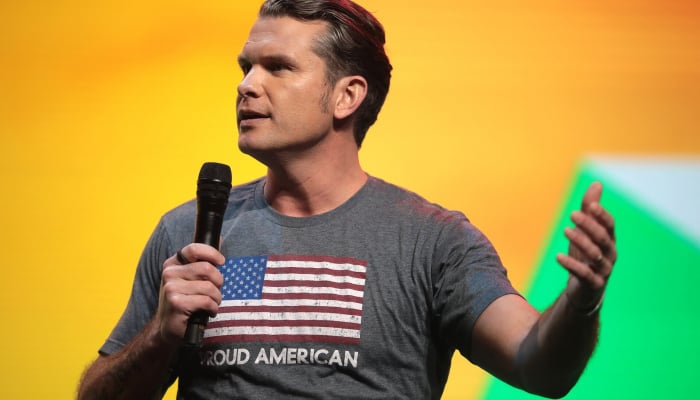
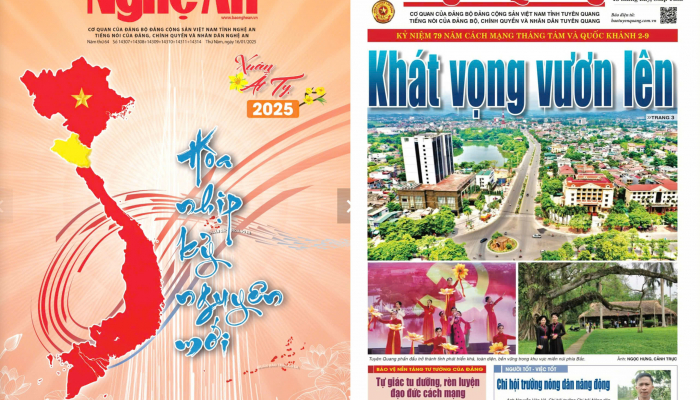
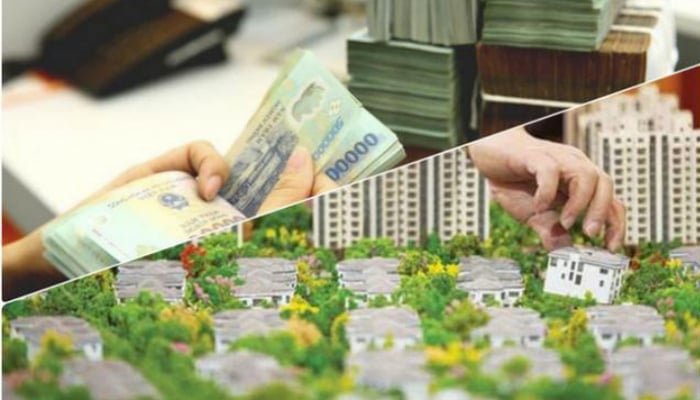
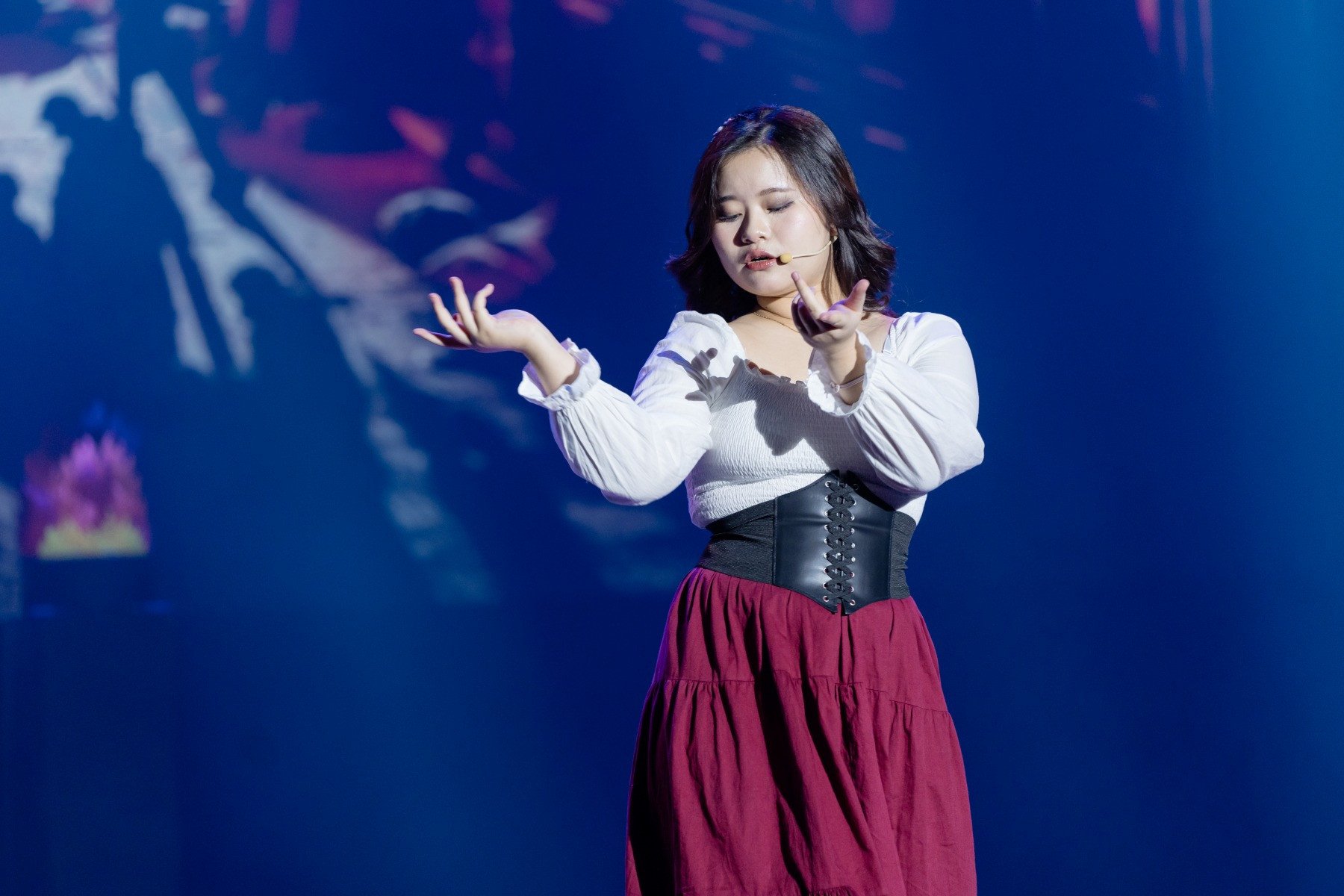
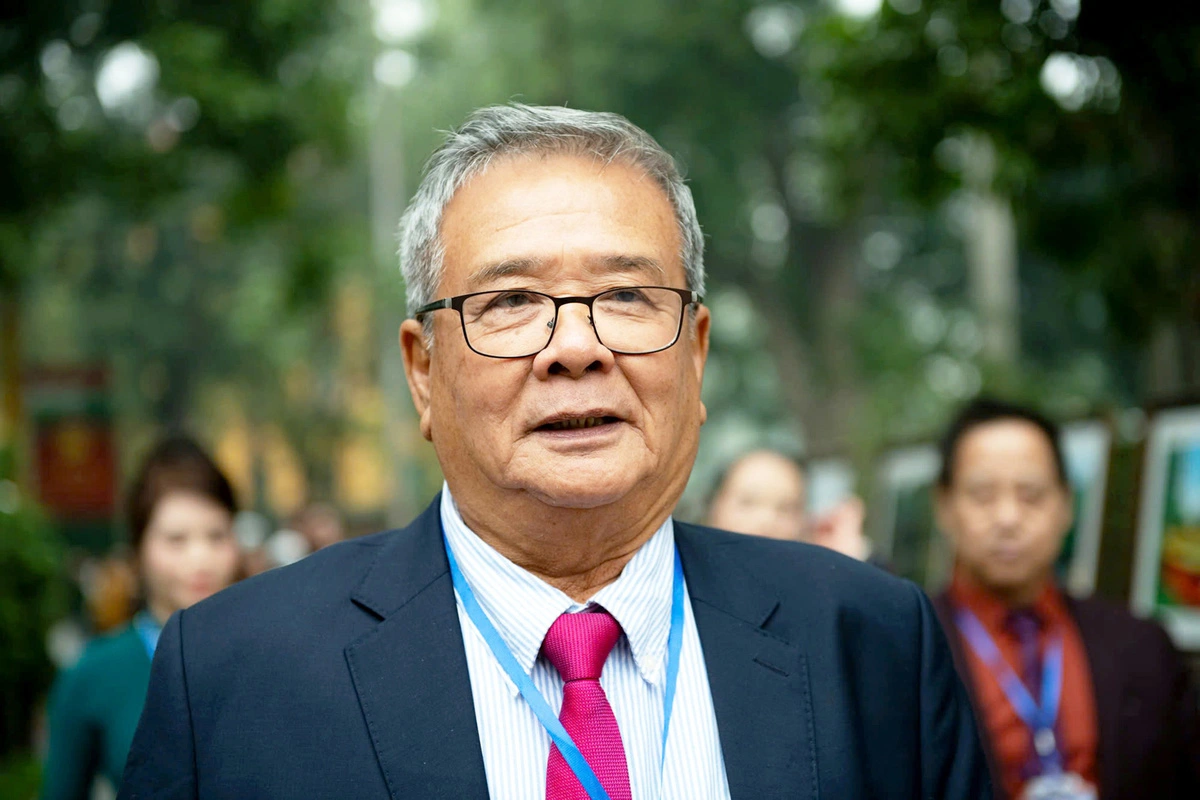

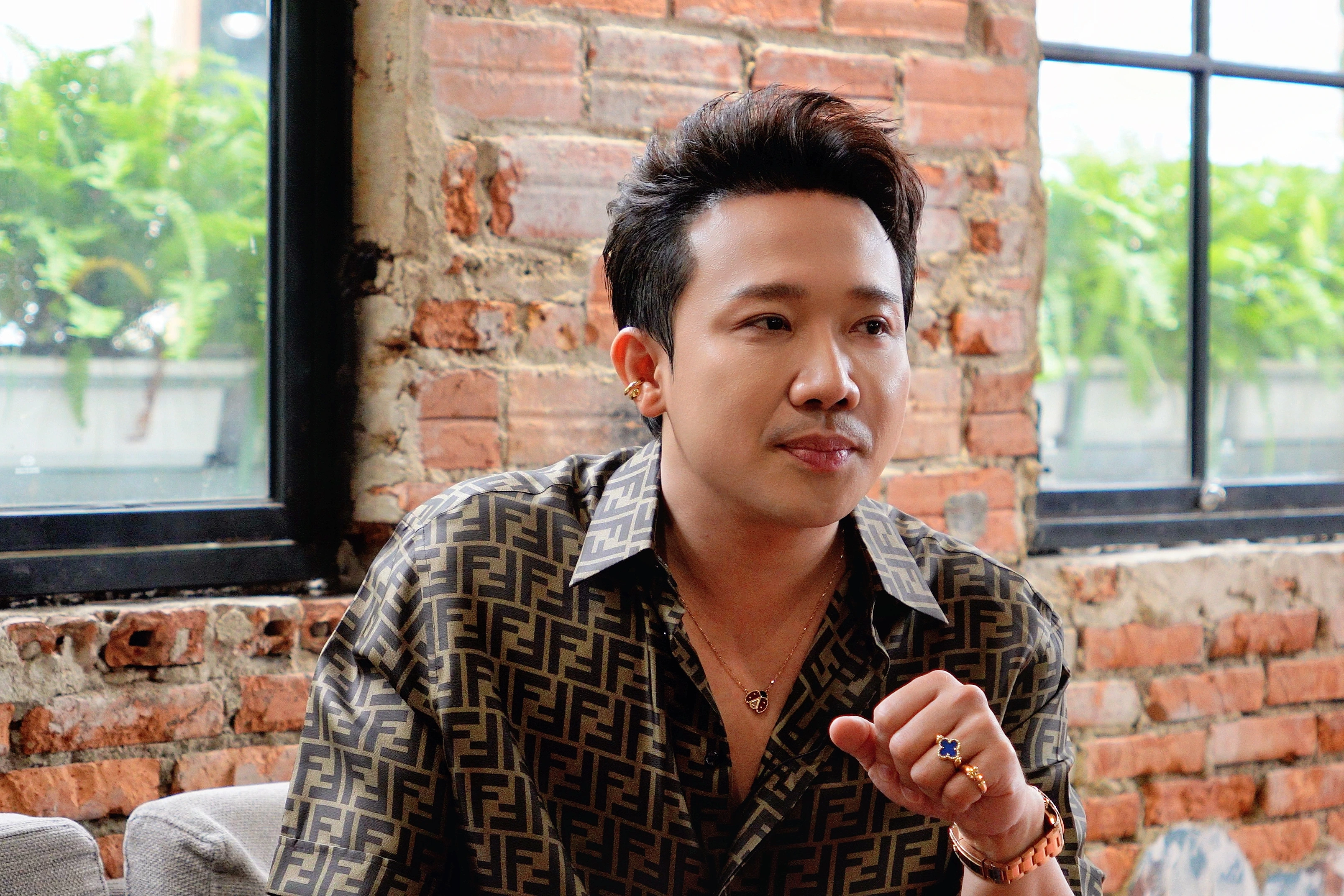


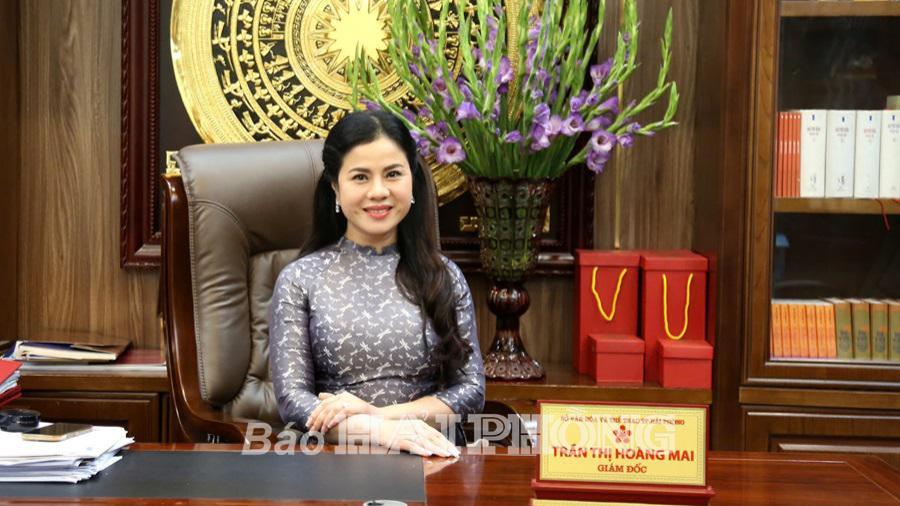

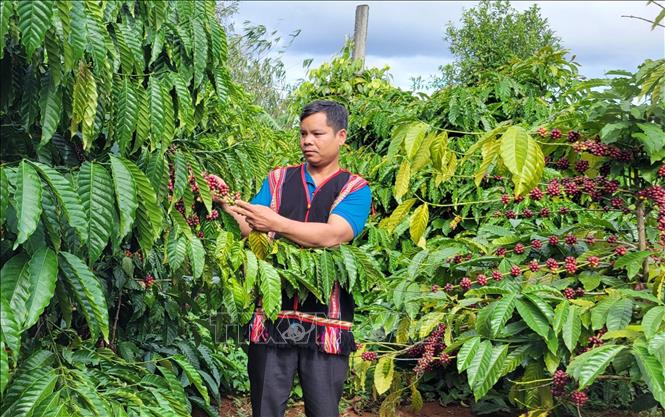





Comment (0)